32 Heartbreaking but True Reasons Adult Children Cut Ties with Their Parents
Family estrangement is a painful reality many face. It’s a topic wrapped in stigma, often misunderstood by those who haven’t experienced it. Cutting ties with parents is heartbreaking but sometimes feels like the only option left.
This decision, though drastic, is often the culmination of years of trying to make things work. Let’s delve into the sad but true reasons why adult children might choose to walk away from their parents.
1. Toxic or abusive upbringing

Growing up in a toxic or abusive environment is a haunting experience. Whether it’s physical harm or emotional scars, the impact lingers long into adulthood. For many, escaping this cycle of abuse feels like freedom.
Imagine living in a space where harsh words and actions are the norm rather than the exception. It’s like walking on eggshells, never knowing when the next storm will hit.
This type of upbringing often leaves children in survival mode, unable to find peace until they distance themselves. Decades of this can lead an adult child to make the hard choice to cut ties.
It’s not about harboring resentment; it’s about self-preservation. Breaking away is their way of finding a path to healing.
These adults often seek therapy or communities where they can share and heal. They work on redefining relationships, learning what healthy boundaries are. By cutting ties, they’re not erasing the past but choosing a healthier future.
It’s a difficult journey, filled with mixed emotions, but one that often leads to personal growth and healing.
2. Narcissistic parents

Narcissistic parents can create a draining environment where manipulation and gaslighting are common. It’s like living in a house of mirrors where reality is distorted to suit one person’s ego. Imagine constantly doubting yourself because your parent twists every situation to make you feel at fault.
These parents often undermine their children’s achievements, leaving them feeling inadequate. It’s emotionally exhausting to constantly seek validation from someone who’s only concerned about their own image.
Over time, this toxic dynamic can push adult children to sever ties, realizing they deserve relationships based on respect and mutual understanding.
Cutting ties with a narcissistic parent is a step towards reclaiming one’s life. It’s about establishing a reality where they can thrive without being overshadowed by someone else’s needs. The journey is challenging, often requiring support from therapy or peer groups, but it leads to a healthier, more authentic existence.
3. Refusal to respect boundaries

Imagine setting boundaries, only to have them repeatedly crossed by the people who should respect them the most. This lack of respect can feel suffocating. Parents who refuse to honor their adult children’s boundaries can create a relationship filled with tension and frustration.
Boundaries are often viewed as a sign of disrespect by parents who believe they have a right to be involved in every aspect of their child’s life. This leaves the adult child feeling trapped, as though their autonomy isn’t recognized. It’s a constant battle between wanting a relationship and needing space to grow independently.
Eventually, the only solution might be to cut ties. This isn’t an easy decision but becomes necessary for self-respect and mental health. By choosing themselves, these adult children are saying, “I matter too.” It’s a step towards finding peace and fostering relationships that honor their boundaries.
4. Favoritism among siblings
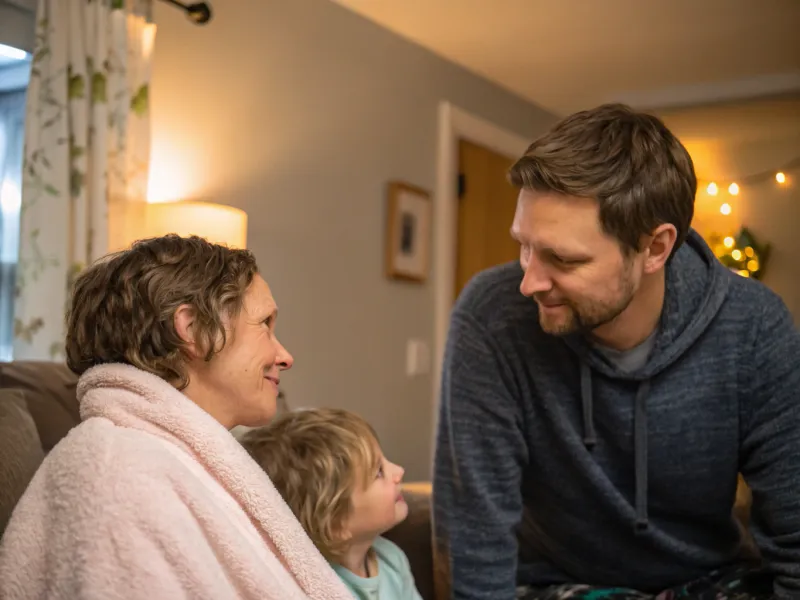
Favoritism is a silent killer of sibling relationships and often strains the parent-child bond. Imagine growing up constantly feeling like the lesser child, watching as your sibling receives all the praise and attention. This imbalance can foster resentment and feelings of inadequacy that persist into adulthood.
Parents may not even realize the depth of harm favoritism causes. It’s not just about hurt feelings; it’s about shaping a child’s self-worth. For the overlooked child, every family gathering becomes a reminder of their perceived shortcomings. Over time, this emotional toll can lead them to distance themselves to protect their own well-being.
Choosing to cut ties isn’t about jealousy; it’s about healing. It’s a step towards finding environments where they’re valued for who they are, not compared to others. This involves soul-searching and support from those who understand the nuanced pain of favoritism.
5. Unresolved childhood trauma

Childhood trauma can leave deep, painful scars that affect relationships into adulthood. Imagine carrying around a backpack full of unresolved pain that gets heavier with each family interaction.
Parents who dismiss or deny this trauma only exacerbate the issue, leaving their children feeling invalidated and alone.
The constant denial of these experiences can feel like gaslighting, where the child questions their own memories and emotions. It’s a lonely place to be, yearning for acknowledgment but receiving silence or skepticism instead.
The lack of resolution can drive adult children to seek distance, not out of spite but out of necessity to heal.
Cutting ties allows them to unpack their baggage without the added weight of parental denial. It’s about seeking spaces that support their healing journey. This path may lead them through therapy or support groups where their experiences are validated and they can work towards understanding and healing.
6. Lack of emotional support

Growing up without emotional support is like navigating life without a safety net. Imagine reaching out for comfort and consistently finding that the people who should support you emotionally are unavailable. Parents who are emotionally distant leave their children feeling isolated, fostering an emotional void.
This lack of support doesn’t just hurt during childhood but ripples into adulthood, affecting how these individuals form relationships. They might struggle with trust and vulnerability, always anticipating that they’ll be left to fend for themselves. It’s a profound loneliness that’s hard to shake off.
Choosing to cut ties can be a way for adult children to seek healthier connections elsewhere. It’s about finding relationships where they feel seen and valued. It’s about self-discovery, learning to provide for their emotional needs independently or finding communities that offer the support they lacked growing up.
7. Enmeshment
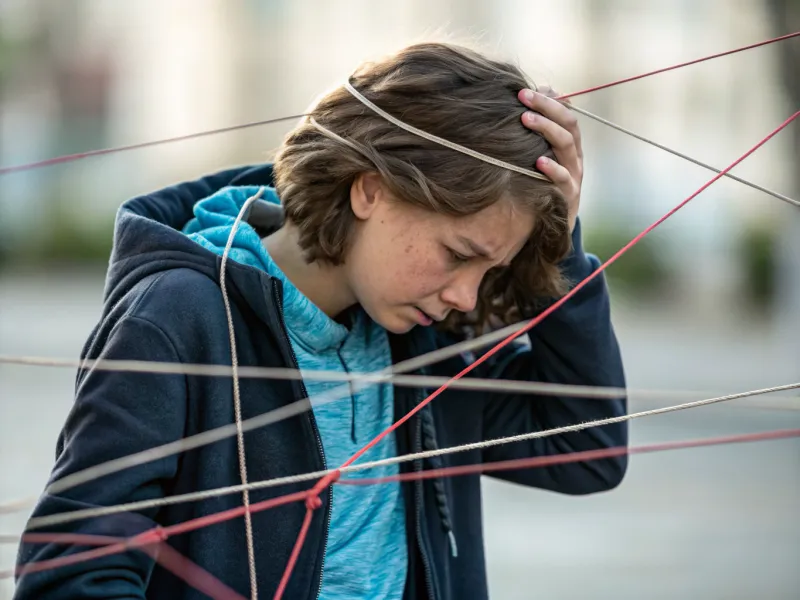
Enmeshment is like living in a web of constant intrusion and control. Imagine not being able to make decisions without feeling guilty or fearful of a parent’s reaction. This lack of personal boundaries creates a stifling environment where an adult child might feel trapped.
Parents who enmesh their children often do so under the guise of love and care, but it’s a form of control that denies individuality. It’s like being an extension of their will, never truly being seen as an independent person. Over time, this can erode self-esteem and hinder personal growth.
Breaking free from enmeshment often means cutting ties to reclaim one’s life. It’s about establishing boundaries that were never allowed before, and finding one’s own voice. This is a courageous step towards autonomy and self-discovery, allowing the adult child to finally breathe freely.
8. Parental addiction

Parental addiction is a heartbreaking challenge that leaves lasting impacts. Imagine growing up in a world of chaos where unpredictability is the only constant. Parents struggling with addiction often create a turbulent environment filled with broken promises and emotional rollercoasters.
The emotional and sometimes physical neglect that accompanies addiction can push children to grow up too fast, assuming adult responsibilities early on. This environment fosters feelings of insecurity and anxiety that linger into adulthood. Many adult children find themselves in a continual state of crisis management.
Choosing to cut ties with a parent struggling with addiction is a painful but sometimes necessary choice for self-preservation. It’s about stepping out of the chaos to find stability and peace. This decision goes hand-in-hand with seeking therapy and support groups that understand the complexities and pain of loving someone with an addiction.
9. Repeated criticism and belittling

Repeated criticism and belittling can erode one’s sense of self over time. Imagine living with a constant voice in your ear that questions your worth and abilities. Parents who consistently criticize and belittle their children plant seeds of doubt and insecurity.
This behavior can create a toxic environment where love feels conditional and approval is scarce. Adult children carry these voices into every aspect of their life, doubting themselves in personal and professional arenas. It’s an exhausting cycle of trying to prove oneself, yet never feeling good enough.
Cutting ties becomes a way to silence those destructive voices. It’s about seeking spaces where they’re celebrated for who they are, unconditionally. This path involves self-discovery, learning to replace critical voices with supportive and loving inner dialogue. It’s a journey towards self-acceptance and nurturing healthier relationships.
10. Toxic family dynamics

Toxic family dynamics, such as scapegoating and triangulation, can create a battleground instead of a home. Imagine being pitted against siblings or feeling like the family’s perpetual black sheep. These dynamics are emotionally draining, leaving little room for peace or authenticity.
In toxic families, roles are often rigidly assigned, and stepping out of them can lead to conflict. The scapegoat, for instance, might take on all the blame to keep peace, while the favored child might struggle with unrealistic expectations. These roles can cause deep-seated resentment and dissatisfaction.
Choosing to cut ties is about breaking free from these damaging roles. It’s a declaration that they deserve a life free from manipulation and blame. It’s about introspection and therapy, learning to build relationships based on equality and mutual respect, far from the toxicity they once knew.
11. Failure to Acknowledge Life Changes

Major life changes often require familial support and recognition. When parents dismiss or downplay significant events like career changes, moving, or personal milestones, it can lead to feelings of alienation.
Acknowledgment of these changes is vital for validation and support. The lack of it might lead the adult child to feel as though their life choices are insignificant in the eyes of their parents.
Parents can bridge this gap by celebrating and acknowledging these moments. Taking an active interest in such changes helps reinforce bonds and shows unconditional love and acceptance.
12. Religious or ideological differences

Religious or ideological differences can create significant rifts between parents and their adult children. Imagine exploring new beliefs or questioning old ones, only to be met with hostility or judgment from those you love. It’s a conflict between personal growth and familial expectations.
For some families, religion or ideology is more than belief—it’s identity. When an adult child diverges from these beliefs, it can feel like a betrayal. This creates an environment where acceptance is conditional, based on conformity rather than individuality. Over time, this pressure can drive a wedge between parent and child.
Choosing to cut ties is often a last resort, a way to honor their personal truth while seeking environments that respect diverse perspectives. It’s a journey towards finding spaces that celebrate diversity of thought, where they can grow without fear of judgment or rejection. It leads to building supportive communities that align with their values.
13. Financial abuse or manipulation

Financial abuse or manipulation can erode trust and leave lasting scars. Imagine being treated not as a beloved family member but as a financial resource or pawn. Parents who engage in financial manipulation often blur the lines between support and control.
This dynamic might involve coercion for monetary support, unfair inheritance practices, or using financial dependence to maintain leverage. It’s a subtle but powerful form of control that can leave adult children feeling trapped and devalued. Over time, this manipulation can poison the relationship beyond repair.
Choosing to cut ties is a step towards financial and emotional independence. It’s about reclaiming autonomy and building boundaries that protect their well-being. It’s financial education, legal advice, and support from groups that understand the complexities of familial financial abuse.
14. Guilt-tripping and emotional blackmail

Guilt-tripping and emotional blackmail are subtle yet powerful tools of control. Imagine every interaction laced with reminders of what you owe your parents or how much they’ve sacrificed. It’s a constant balancing act between love and obligation, leaving little room for genuine connection.
Parents who employ these tactics often believe they’re acting out of love, yet it’s a coercive love that demands compliance. The emotional toll can be overwhelming, leaving adult children feeling forever indebted and manipulated. Over time, this dynamic can erode self-worth and autonomy.
Cutting ties becomes a path to reclaiming one’s life and self-identity. It’s about finding relationships where love is given freely, without strings attached. It involves therapy to unpack the emotional manipulation and rebuild self-esteem, allowing them to form healthier, more balanced connections.
15. Dismissal of mental health struggles

Parents dismissing mental health struggles can deepen the anguish of those seeking support. Imagine reaching out for help, only to hear dismissive comments or advice to “snap out of it.” It’s a denial of your reality, making you feel unseen and misunderstood.
Mental health struggles are legitimate and require understanding and support. Parents who deny these struggles often do so out of ignorance or stigma, not realizing the harm they’re causing. This dismissal can lead to feelings of shame, exacerbating the issues instead of alleviating them.
Cutting ties may be a way to prioritize mental health, allowing the individual to seek environments that offer understanding and support. This includes finding communities or therapists who validate their experiences and help them build a network of genuine support, fostering healing and acceptance.
16. Refusal to apologize

A refusal to apologize can stall healing and reconciliation. Imagine waiting for years to hear an acknowledgment of past hurt, only to be met with stubborn silence. Apologies are powerful—offering validation and a path to healing. Without them, wounds remain open.
Parents who refuse to apologize often do so to maintain power or avoid vulnerability. They might fear that admitting fault will undermine their authority or open up old wounds. For the adult child, this lack of accountability can feel like a denial of their pain and experiences.
Cutting ties may become a necessary step when apologies aren’t forthcoming. It’s about seeking closure and healing on one’s terms, without waiting for validation that may never come. It involves personal reflection and therapy to process unresolved issues, fostering personal growth and acceptance.
17. Parental alienation

Parental alienation is a destructive force that drives wedges between family members. Imagine being caught in the middle of parental conflicts, feeling pressured to choose sides. It’s a manipulation that seeks to undermine one parent to favor another, leaving children torn.
This tactic can cause deep emotional distress, creating loyalty conflicts and trust issues. The child becomes a pawn in parental disputes, which can scar their ability to form healthy relationships. The emotional turmoil often extends into adulthood, affecting their perception of family and trust.
Cutting ties is sometimes a necessary step to escape this toxic dynamic. It’s about reclaiming one’s sense of identity and loyalty, free from manipulation. This decision involves seeking therapy to untangle the web of alienation, building a foundation of trust and self-awareness.
18. Overbearing and controlling behaviors

Overbearing and controlling behaviors can stifle personal growth and independence. Imagine every decision scrutinized and second-guessed by a parent who refuses to let go. It’s like living under a microscope, where autonomy is a foreign concept.
Parents who exhibit these behaviors often do so out of fear or a desire to protect, not realizing how it limits their child’s development. This constant oversight can lead to feelings of suffocation and resentment. Adult children may find themselves struggling to establish their own identities.
Choosing to cut ties can be a way to break free from these constraints. It’s about forging a path of self-discovery and learning to trust one’s own judgment. It’s setting firm boundaries and finding supportive environments that encourage personal growth and independence.
19. Chronic drama and chaos

Living amidst chronic drama and chaos can be exhausting and destabilizing. Imagine every family gathering turning into a battlefield, where peace is a rare luxury. This constant state of upheaval leaves little room for tranquility or personal growth.
In such environments, drama becomes the norm, overshadowing genuine connection and happiness. It’s emotionally draining to be caught in cycles of conflict, where calm moments are fleeting and unpredictable. Over time, this chaotic atmosphere can erode mental and emotional well-being.
Cutting ties is sometimes a necessary step towards finding peace and stability. It’s about creating a life where drama isn’t the main feature, but an anomaly. This involves seeking therapy to process the impact of chronic chaos and build a foundation of calm and resilience in their daily lives.
20. Toxic extended family

Navigating toxic extended family relationships can be a minefield of emotional turmoil. Imagine family gatherings filled with judgmental stares and whispered criticisms. It’s like stepping into a space where every move is scrutinized and criticized, leaving one feeling constantly on edge.
Parents who insist on maintaining these toxic connections often do so out of tradition or obligation, not realizing the harm it causes. This pressure to conform can leave adult children feeling trapped in a cycle of negativity and anxiety, unable to escape the toxicity.
Choosing to cut ties is about seeking healthier family dynamics and finding peace away from judgment. It’s a courageous step towards building a network of supportive relationships, whether they’re chosen family or friends who provide unconditional love and acceptance.
It involves setting boundaries and prioritizing one’s mental and emotional health.
21. Unrealistic expectations

Unrealistic expectations can create a heavy burden that strains parent-child relationships. Imagine feeling pressured to live up to dreams that aren’t your own. Parents who impose their aspirations onto their children often do so with good intentions but fail to see the individuality of their child.
This pressure can lead to feelings of inadequacy and a constant struggle for approval. It’s exhausting to navigate life under the shadow of someone else’s expectations, where personal desires and goals are sidelined. Over time, this dynamic can lead to resentment and a desire for independence.
Cutting ties can be a way to explore one’s own path without the weight of imposed expectations. It’s about pursuing dreams that align with personal passions and values. It’s about introspection and finding communities that encourage authenticity and self-discovery, free from external pressures.
22. Lack of effort in the relationship
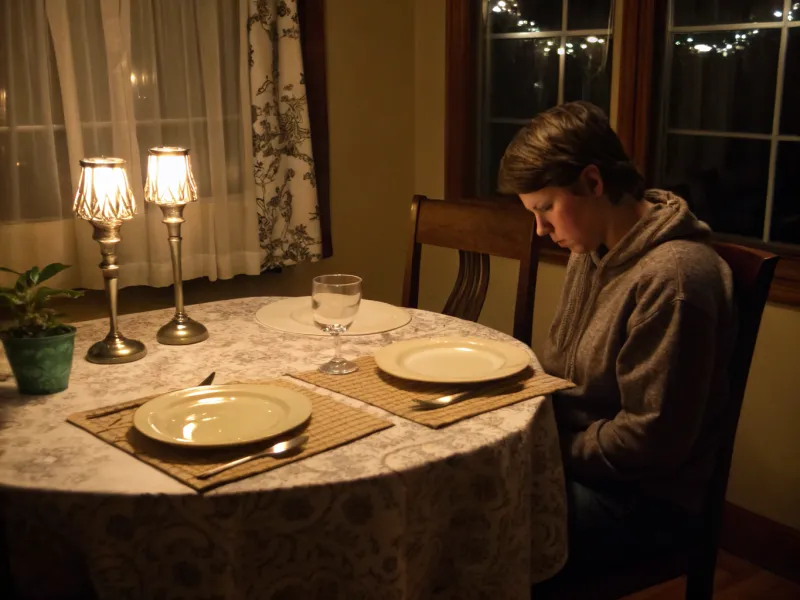
A lack of effort in the relationship can create feelings of abandonment and isolation. Imagine reaching out repeatedly, only to be met with silence or indifference. Parents who don’t put in the effort leave their children feeling undervalued and unimportant.
This absence isn’t just physical but emotional, creating a void that’s hard to fill. It’s disheartening to feel like an afterthought, where attempts to connect are met with apathy. This dynamic can lead to feelings of loneliness and frustration, eroding trust and love.
Choosing to cut ties is sometimes a way to seek relationships that are reciprocal and nurturing. It’s about finding connections where effort is mutual and valued. It involves seeking out communities or friendships that offer the support and engagement that were lacking, fostering a sense of belonging and validation.
23. Blaming the child

Being blamed for everything creates a toxic cycle of guilt and defensiveness. Imagine carrying the weight of every family issue on your shoulders, regardless of your involvement. Parents who blame their children often deflect responsibility, leaving the child to grapple with unwarranted guilt.
This behavior can create a tense and accusatory environment, where every interaction feels like a minefield. Adult children might find themselves constantly defending their actions or avoiding conflict altogether. Over time, this dynamic can erode self-esteem and trust in the relationship.
Cutting ties can be a way to break free from this cycle of blame. It’s about finding spaces where accountability is shared, creating healthier dynamics. This decision often involves therapy to unpack the burden of blame and rebuild self-worth, allowing for more balanced and respectful relationships.
24. Sabotage of relationships

Parents sabotaging relationships can create a rift between them and their adult children. Imagine trying to build connections, only to find them undermined by those who should support you. It’s a betrayal of trust that can leave lasting scars on personal and professional relationships.
Parents might act out of a misguided sense of protection or fear of losing their child’s attention. However, this interference can stifle the child’s growth and autonomy, leading to frustration and resentment. Over time, it becomes a barrier to forming healthy, independent relationships.
Choosing to cut ties can be a step towards reclaiming control over one’s life and relationships. It’s about building a support network that respects boundaries and encourages personal growth.
This journey often involves setting firm boundaries and seeking environments where relationships are nurtured without interference or sabotage.
25. Extreme political differences
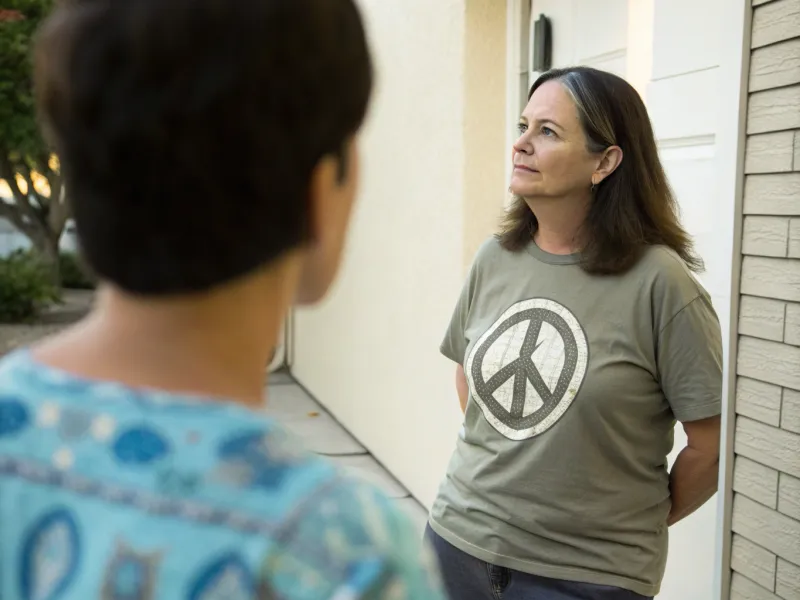
Extreme political differences can create a chasm between parents and their adult children. Imagine every conversation turning into a debate, where mutual respect is overshadowed by clashing ideologies. It’s a tension that permeates every interaction, making genuine connection difficult.
For some families, politics is deeply tied to identity, and diverging views can feel like a personal affront. This dynamic can create an environment of constant conflict, where understanding and acceptance are sacrificed for ideological supremacy. It’s a challenging landscape to navigate, often leading to estrangement.
Cutting ties is sometimes a way to preserve one’s peace and sanity. It’s about finding spaces where political differences don’t overshadow love and respect.
This decision involves seeking communities that value diversity of thought and encourage respectful dialogue, fostering healthier relationships free from partisan conflict.
26. Generational trauma
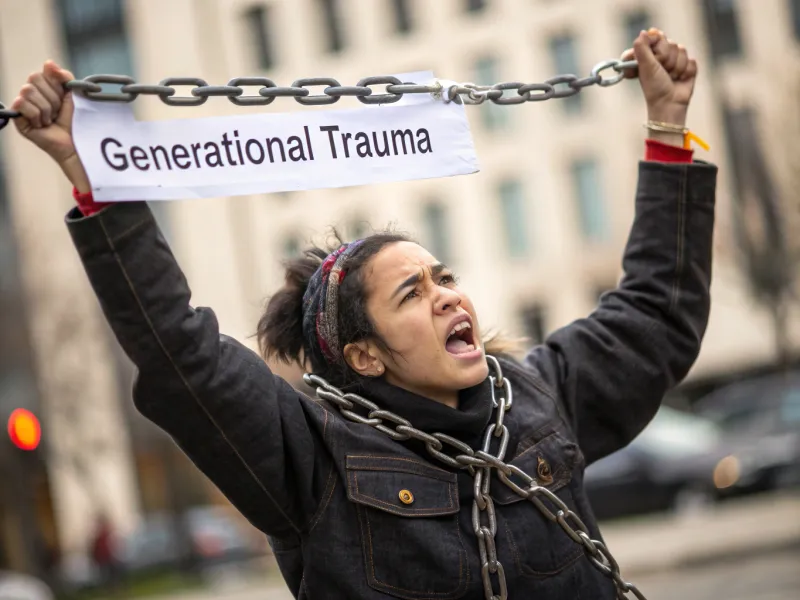
Generational trauma is a cycle of pain passed down through families. Imagine inheriting a legacy of hurt and dysfunction, where old wounds are never healed. Parents who perpetuate this trauma often do so unconsciously, not realizing the impact on their children.
This cycle can create an environment filled with unresolved issues, where past hurts overshadow the present. It’s a legacy that shapes family dynamics and individual identities, often leading to feelings of helplessness and frustration. Over time, the weight of this trauma can become unbearable, prompting a need for change.
Cutting ties is a courageous step towards breaking the cycle of trauma. It’s about creating a future that’s free from the shadows of the past. This decision often involves therapy and self-reflection, building new patterns of behavior and understanding that pave the way for healing and growth.
27. Legal or financial betrayals

Legal or financial betrayals can shatter trust and leave deep scars. Imagine discovering that those you trusted most have misused your trust for personal gain. Parents who engage in such betrayals often blur the lines of familial loyalty and responsibility.
These betrayals might involve financial manipulation, fraud, or unfair legal practices, such as contested wills. It’s a violation that can leave adult children feeling used and deceived. The emotional and financial damage can be profound, impacting their sense of security and trust in relationships.
Cutting ties is sometimes a necessary step towards rebuilding trust and stability. It’s about creating boundaries that protect against further betrayal and seeking environments that prioritize honesty and integrity. This involves legal advice and support from communities that understand the complexities of familial betrayal.
28. Lack of respect for autonomy

A lack of respect for autonomy can stifle personal growth and independence. Imagine every decision questioned or overridden by a parent who treats you like a perpetual child. It’s a dynamic that denies individuality and fosters resentment.
Parents who refuse to respect their child’s autonomy often do so out of a desire to protect or maintain control. This behavior can create a suffocating environment where personal choices are undermined, leaving the adult child feeling trapped and devalued.
Choosing to cut ties can be a way to reclaim control over one’s life. It’s about establishing boundaries and pursuing a path of self-discovery and growth. This involves seeking environments that nurture and respect individuality, allowing for the development of a strong sense of self.
29. Refusal to accept change

A refusal to accept change can create a stagnant and frustrating family dynamic. Imagine growing and evolving, only to be pulled back by parents who resist any deviation from the status quo. It’s a tension between personal growth and familial expectations.
Parents who refuse to accept change often fear losing control or facing the unknown. This resistance can stifle their child’s development and lead to feelings of frustration and resentment. Over time, this dynamic can create an environment where progress is hindered by outdated beliefs and practices.
Cutting ties is sometimes a necessary step to embrace change and pursue personal growth. It’s about finding spaces that support and encourage evolution and change.
This involves self-reflection and seeking communities that celebrate diversity and adaptability, fostering a healthier, more dynamic way of living.
30. When love isn’t enough

Sometimes, love isn’t enough to maintain a relationship marked by pain and dysfunction. Imagine loving someone deeply but knowing that staying connected only causes more harm. It’s a heartbreaking realization that love can’t fix every problem.
This dynamic often involves a history of unresolved issues that overshadow affection. The love might be genuine, but it’s tangled with hurt, resentment, and unmet needs. Staying in such relationships can prevent healing and personal growth, keeping both parties locked in a cycle of pain.
Choosing to cut ties is a painful but sometimes necessary step towards healing. It’s about recognizing that love doesn’t always equate to compatibility or healthiness.
This decision often involves seeking therapy and support to navigate the grief and mixed emotions, fostering personal growth and a future filled with healthier, more fulfilling relationships.
31. Emotional Parentification

Emotional parentification is a hidden burden that many adult children carry. Imagine growing up not just as a child, but as your parent’s emotional caretaker — their therapist, their confidante, their source of stability. When the roles are reversed, and you’re forced to meet emotional needs far beyond your years, it robs you of a carefree childhood.
This dynamic fosters deep exhaustion and resentment over time. It can also blur boundaries, making it difficult to form healthy adult relationships. The child, now grown, may struggle with guilt and identity confusion — caught between love and the desire to finally be seen as just that: a child, not a surrogate partner or parent.
Choosing to walk away is not about coldness or indifference. It’s about healing. It’s about letting go of a role that was never theirs to carry. By cutting ties, they reclaim their right to grow, to be nurtured, and to build a life centered on mutual care — not obligation.
32. Constant Undermining of Parenting Choices

There’s something uniquely painful about having your own parenting undermined by the very people who raised you. Imagine trying to raise your children with love, respect, and intention, only to have those efforts dismissed, mocked, or sabotaged by your parents.
Maybe it’s unsolicited advice laced with judgment, or outright defiance of your rules when the kids are with them. What might seem “harmless” to them feels like a constant attack on your credibility, your values, and your confidence as a parent.
When every interaction becomes a battle over how to raise your children, it chips away at trust. Some adult children choose distance — or even estrangement — not out of pettiness, but as a way to protect their own children from that same cycle of invalidation.
Setting boundaries and ultimately cutting ties can be an act of protection — not just for themselves, but for the next generation. It’s a stand for respect, consistency, and breaking toxic patterns.







